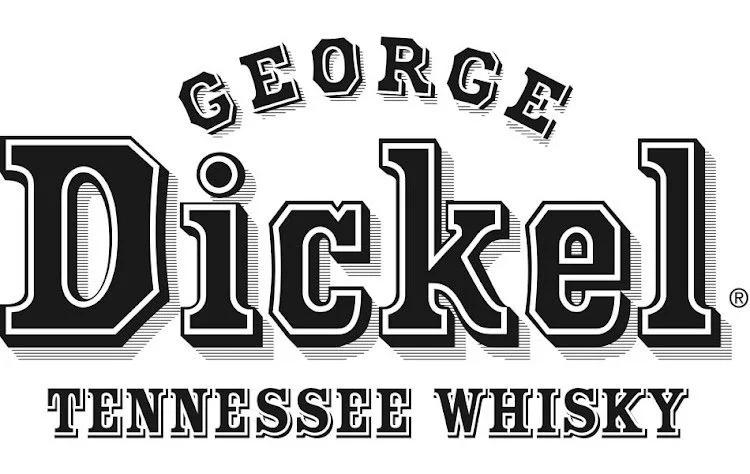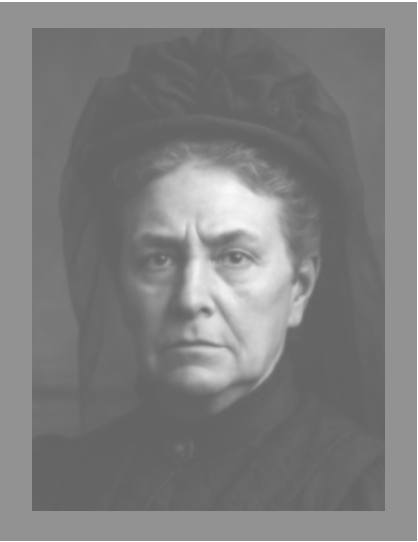Augusta Dickel
No known photographs of Augusta Dickel are known to exist. Above is an AI-generated representation of how she may have appeared in about 1905 using factual information known about her at that time.
“Silent Partner”
Augusta Mathilde Banzer was born on May 1, 1838, to prosperous German-American Nashvillians George and Louise Banzer. She grew up fluent in German cultural tradition and values. From an early age, Augusta was bright, educated, socially adept, and steeped in the finer things afforded by her upper-class upbringing as well as the large, cohesive German‑American community in Nashville.
When Augusta was in her early 20s, her sister’s husband, Victor Shwab, introduced Augusta to his business partner, successful whiskey wholesaler George Augustus Dickel, who had built what was already a thriving liquor business in Nashville. Romance soon blossomed between the two, even though Augusta was 22 years younger than George, and they married on January 30, 1860.
Augusta had grown up to be canny and sharp with finance, a sensible match for George’s entrepreneurial drive. The couple never had children, allowing Augusta to focus on travel, friends, and society. Meanwhile, Dickel’s wholesaling firm began distributing the popular Cascade brand whiskey from Tullahoma’s Cascade Hollow Distillery in the 1870s. The whiskey was renowned for its spring‑fed water and charcoal‑filtered smoothness, and was marketed under the slogan “Mellow as Moonlight”. In the late 1870s, eyeing an opportunity when he saw it, the wily Dickel bought the entire distillery.
1915 print ad and Cascade Whiskey bottle from that time period
By then, George and Augusta Dickel were considered quite wealthy, and before long, they retired to a life of ease in Nashville, where they lived in a large, stately home on Dickerson Pike that contained, amongst other niceties, a well-known and picturesque pear orchard. Unfortunately, George was gravely injured in an untimely horse fall in 1886. His health continued to decline, and his business partner Victor Shwab gradually assumed control over daily operations. Augusta stepped in to help manage George’s shares, holding them while Shwab ran the companies, and exercising quiet but effective oversight over her brother-in-law's administration of the operations.
George Dickel died on June 11, 1894, at age 76 in Nashville, leaving all of his shares of George A. Dickel & Co. and Cascade Hollow Distillery to Augusta, with instructions for her to sell them when convenient. Augusta, however, declined to sell and retained her ownership stake, even though she did not take an active role in managing the businesses day-to-day.
While Augusta remained a principal shareholder, Victor Shwab continued to run both the wholesaling firm and the Cascade Distillery operations through the early 1900s. Shwab vigorously opposed Tennessee’s move into statewide Prohibition in 1910 and financed lobbying efforts to fight legislative restrictions on alcohol sale and production.
A rich widow, Augusta, who never remarried, spent the rest of her life traveling, purchased a home on Lake Michigan, took months-long trips to Europe, and maintained ties with social circles in Germany as well as in France. Observers noted Augusta Dickel “lavishly entertained friends and acquaintances in France and Germany,” hosting parties with gusto, even as she aged elegantly into her 70s.
Under her ownership, the Cascade brand continued to expand regionally into the early 1900s; it remained popular well past George’s death. When Tennessee enacted its early Prohibition in 1910, the distillery operations were relocated to Kentucky via a contract with the Stitzel Distillery in Louisville. Cascade continued to be produced in Kentucky under Shwab’s guidance until that state also adopted Prohibition in 1917, then national Prohibition commenced, completely ending Stitzel’s as well as Cascade’s whiskey production.
Augusta died September 16, 1916, at the age of 78 in her Charlevoix, Michigan, home. Her body was transported back to her hometown of Nashville, where she is buried at the Mount Olivet Cemetery.
Contemporary records estimate that at her death, Augusta Dickel’s estate was worth perhaps $30 million in today’s terms. Having no other living descendants, her assets were willed in their entirety to her sister Emma and Emma’s husband, Victor Shwab.
Under the Shwab’s descendants, the company eventually sold the Cascade brand and recipe to Schenley Industries in 1937. Two decades later, the Cascade Hollow Distillery was rebuilt in 1958 at the original site, and the whiskey was re‑launched under the George Dickel name. Now owned by Diageo, it is Tennessee’s second-largest whiskey producer behind Jack Daniel’s.
Although Augusta Dickel may not have run the distillery floor, her influence was significant: by preserving George Dickel’s stake for over two decades after his death, she enabled continuity of that legacy brand at a moment when Prohibition-era turbulence might otherwise have erased it. Her life combined quiet financial power, social sophistication, and resolve, and while often overlooked in popular lore, she truly shaped the fate of the Cascade brand as a silent, but very effective, partner.
Sources:
Those Pre-Pro Whiskey Men, “George Dickel: Fable and Fame”, July 2, 2014
Tennessee Encyclopedia, tennesseeencyclopedia.net, Kevin Cason
Contributed by Tracy McLemore, Fairview, Tennesseex






